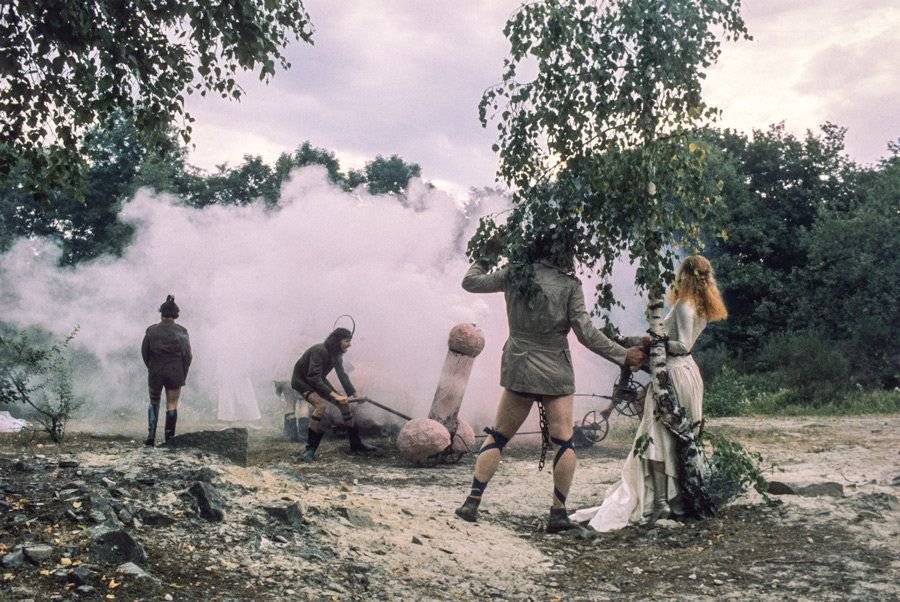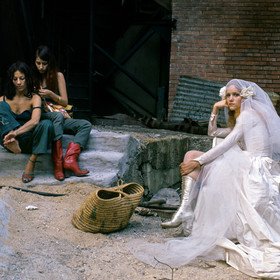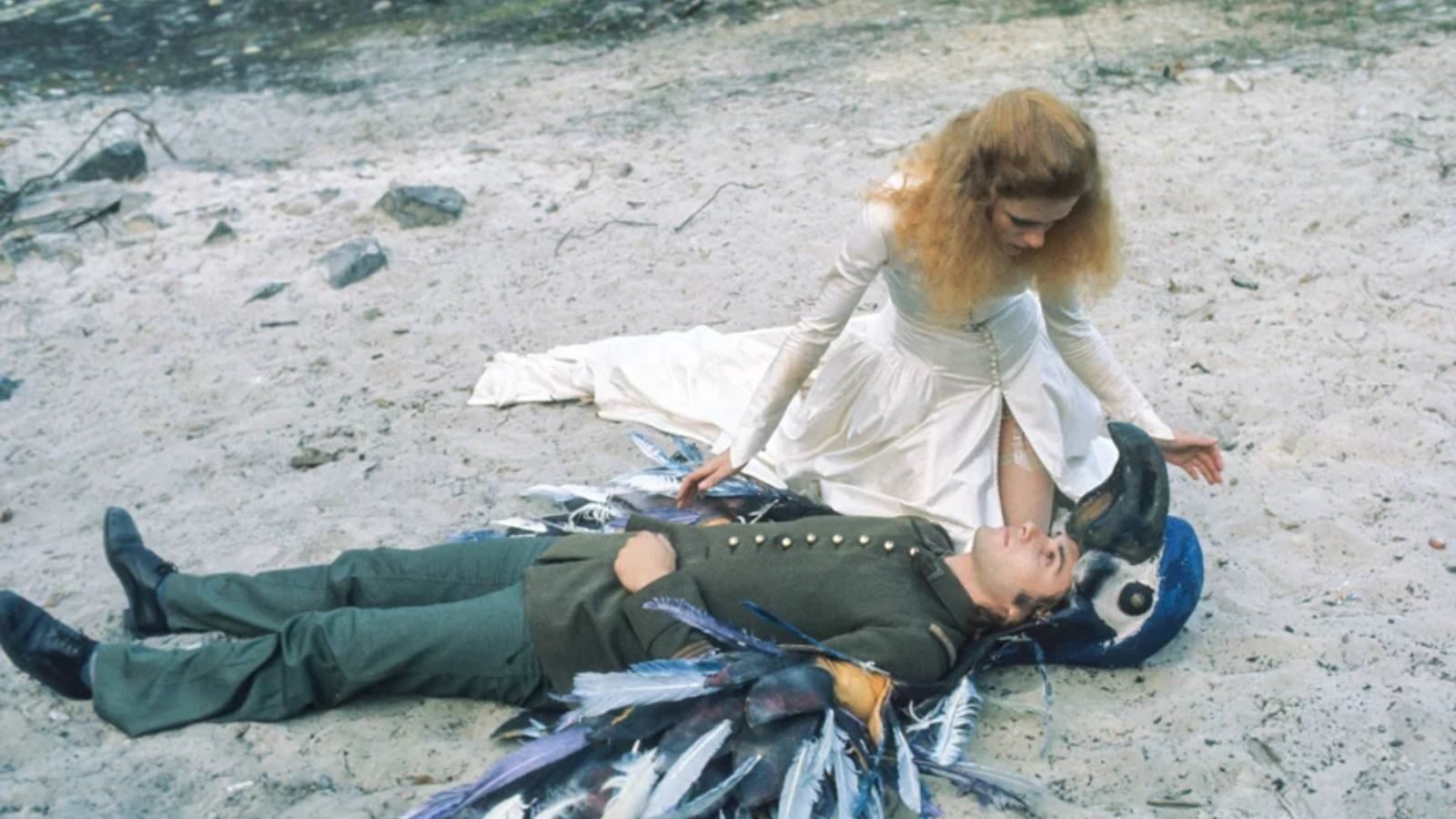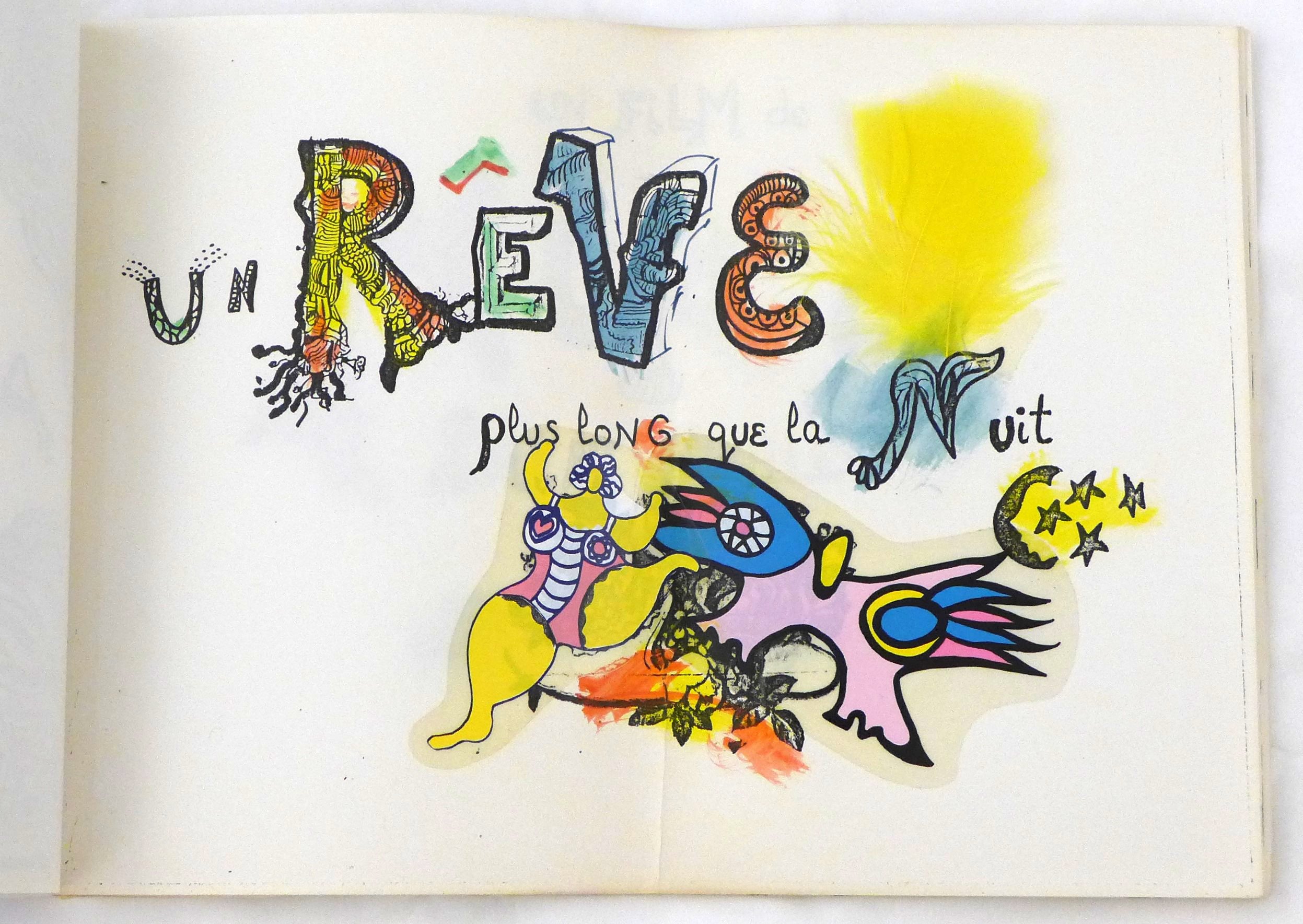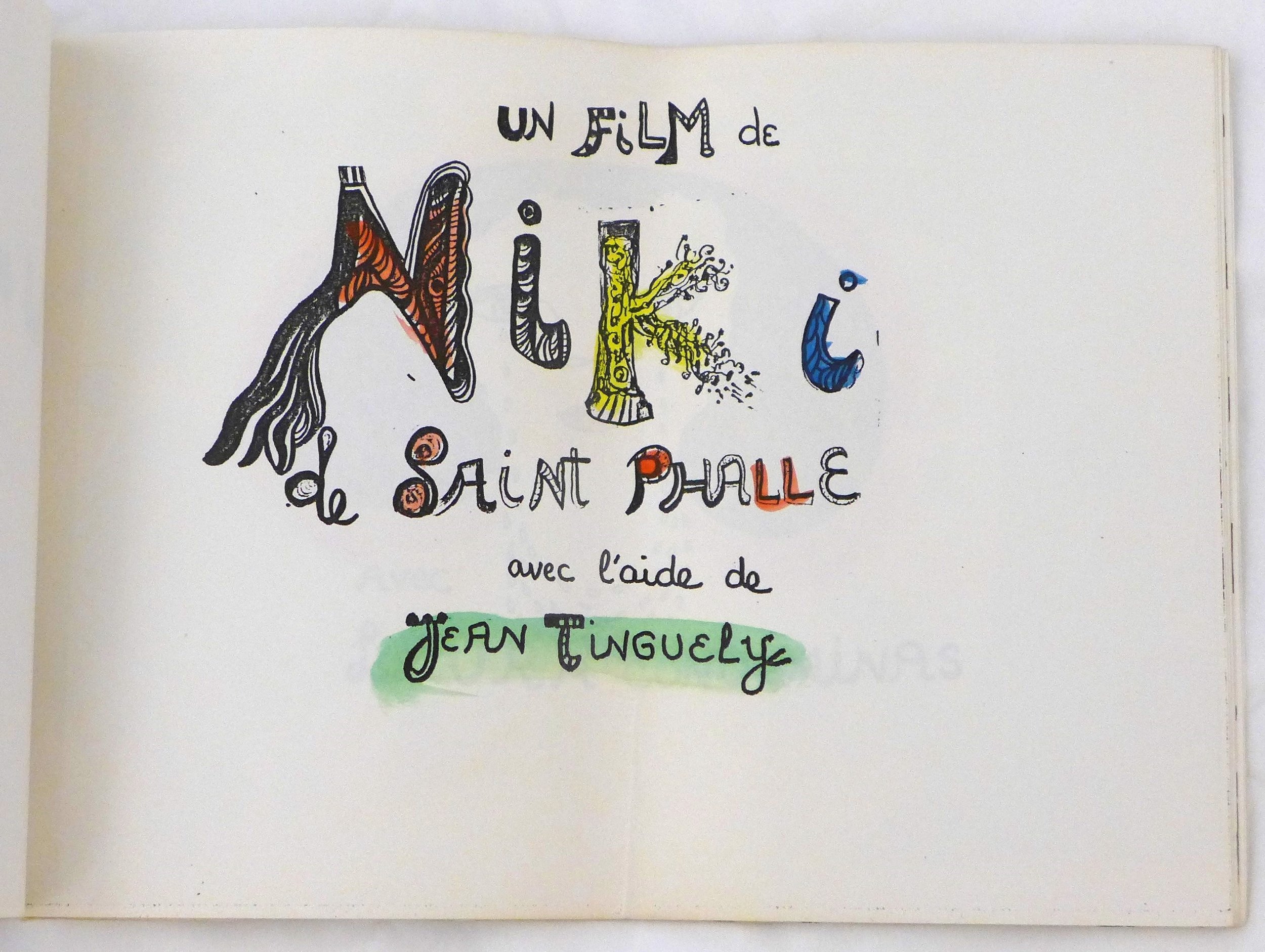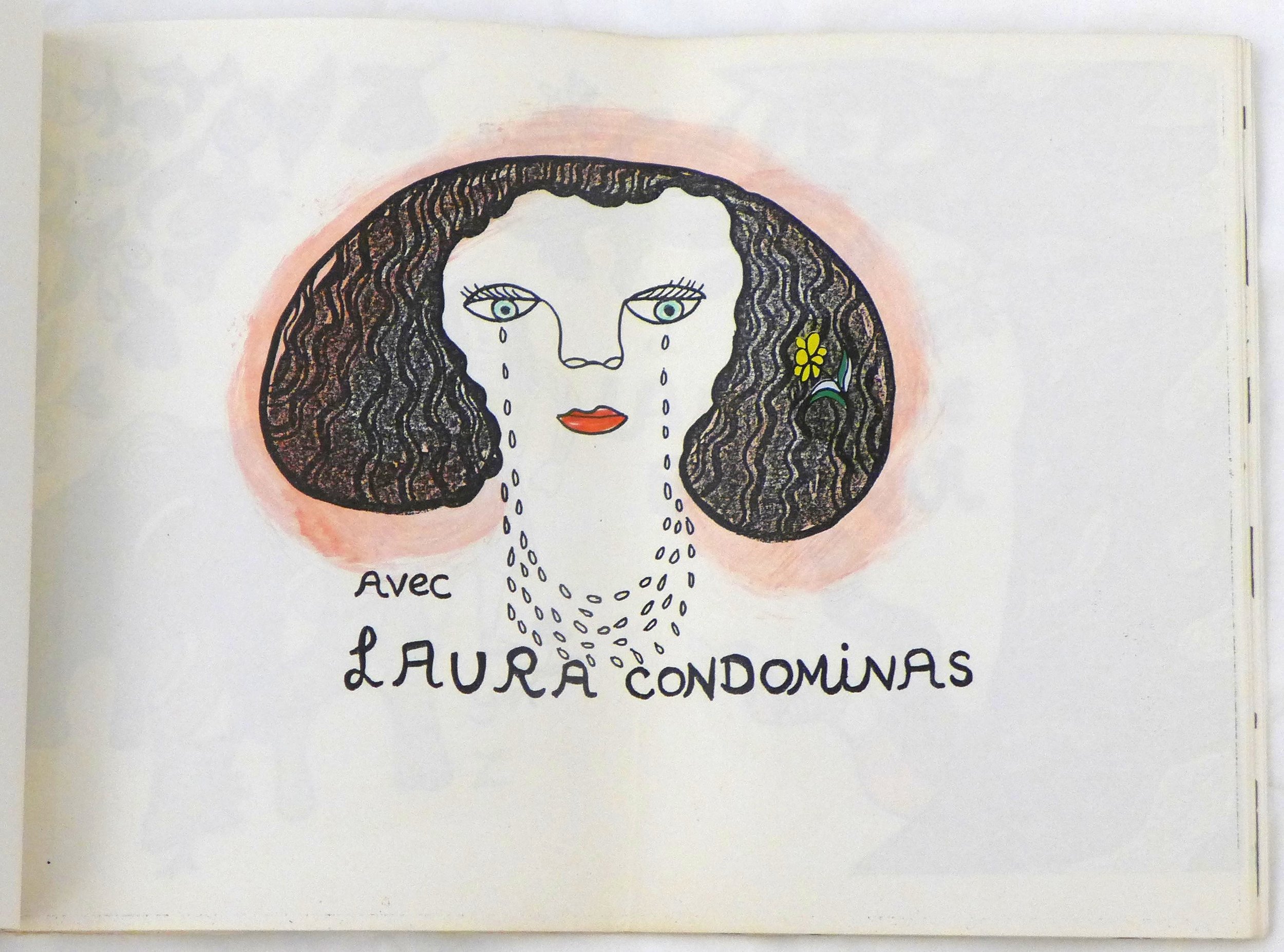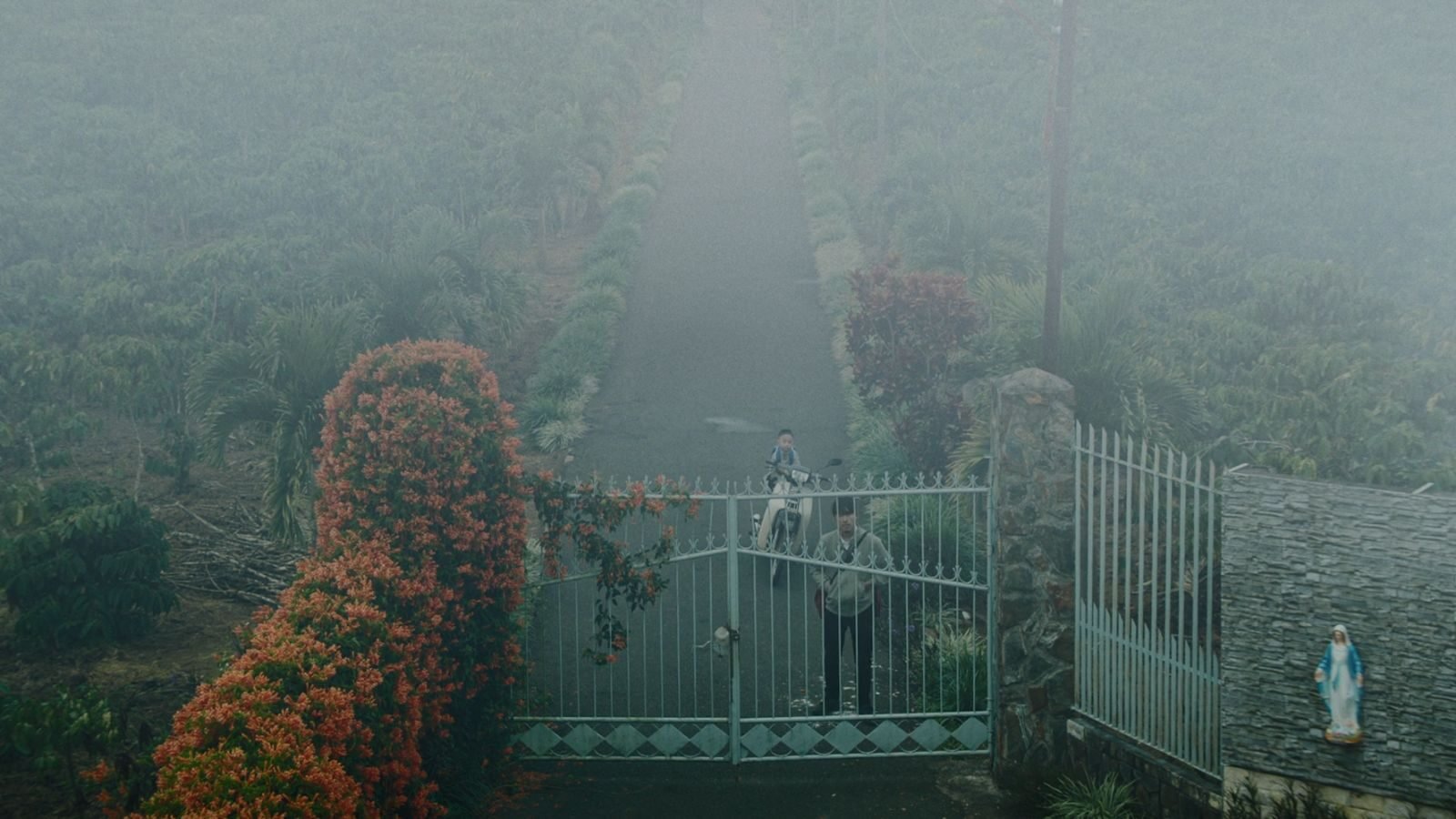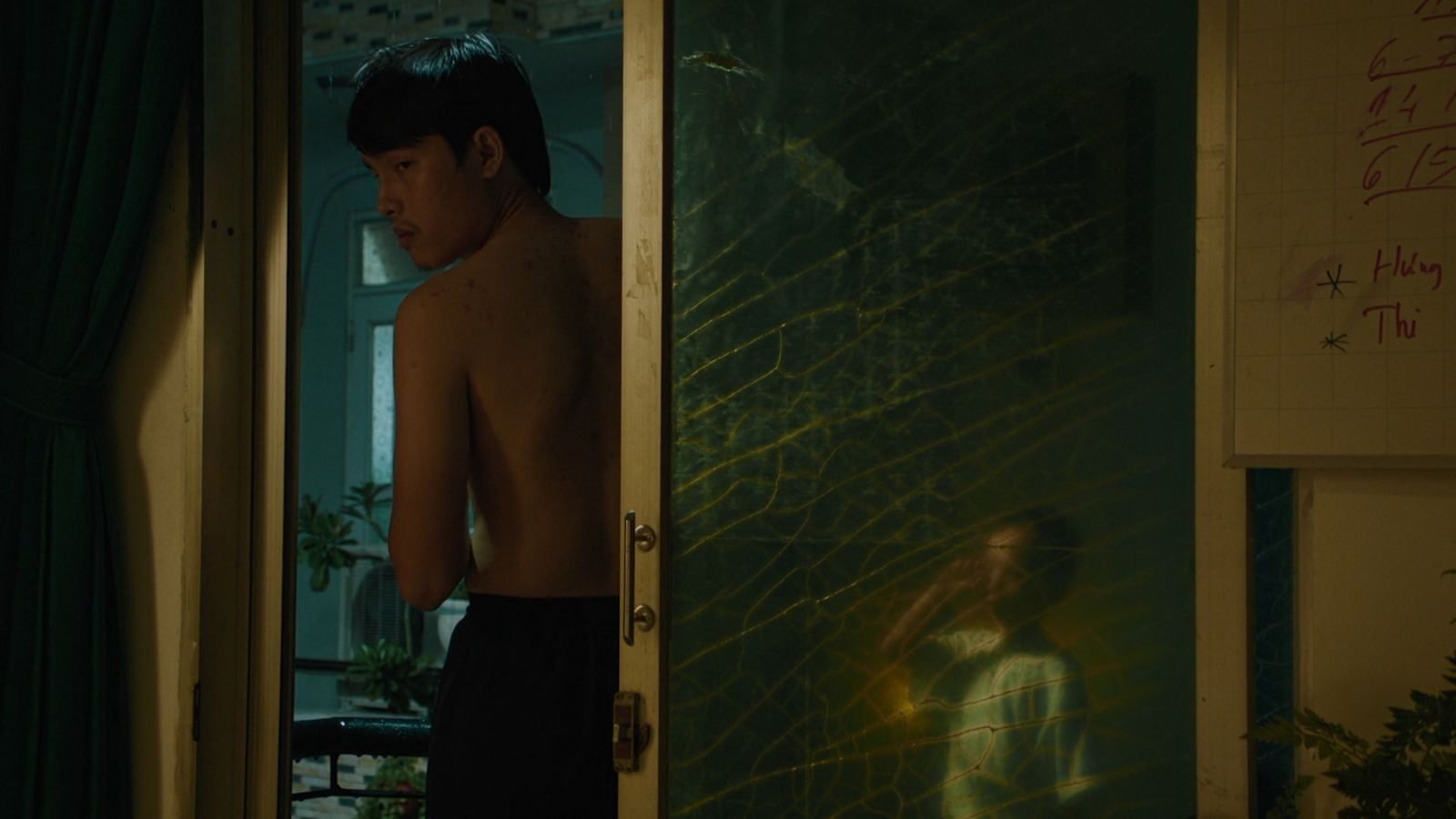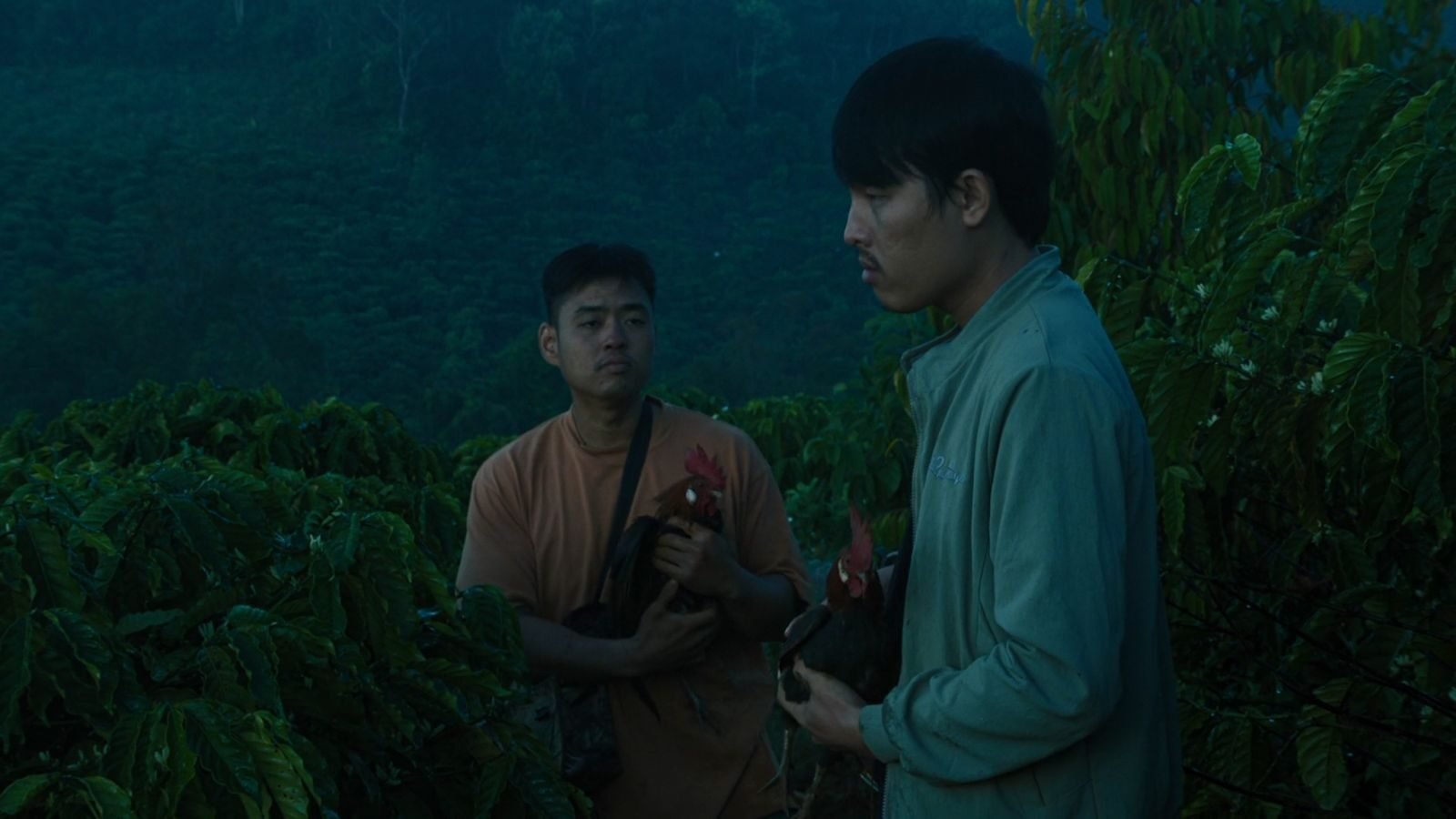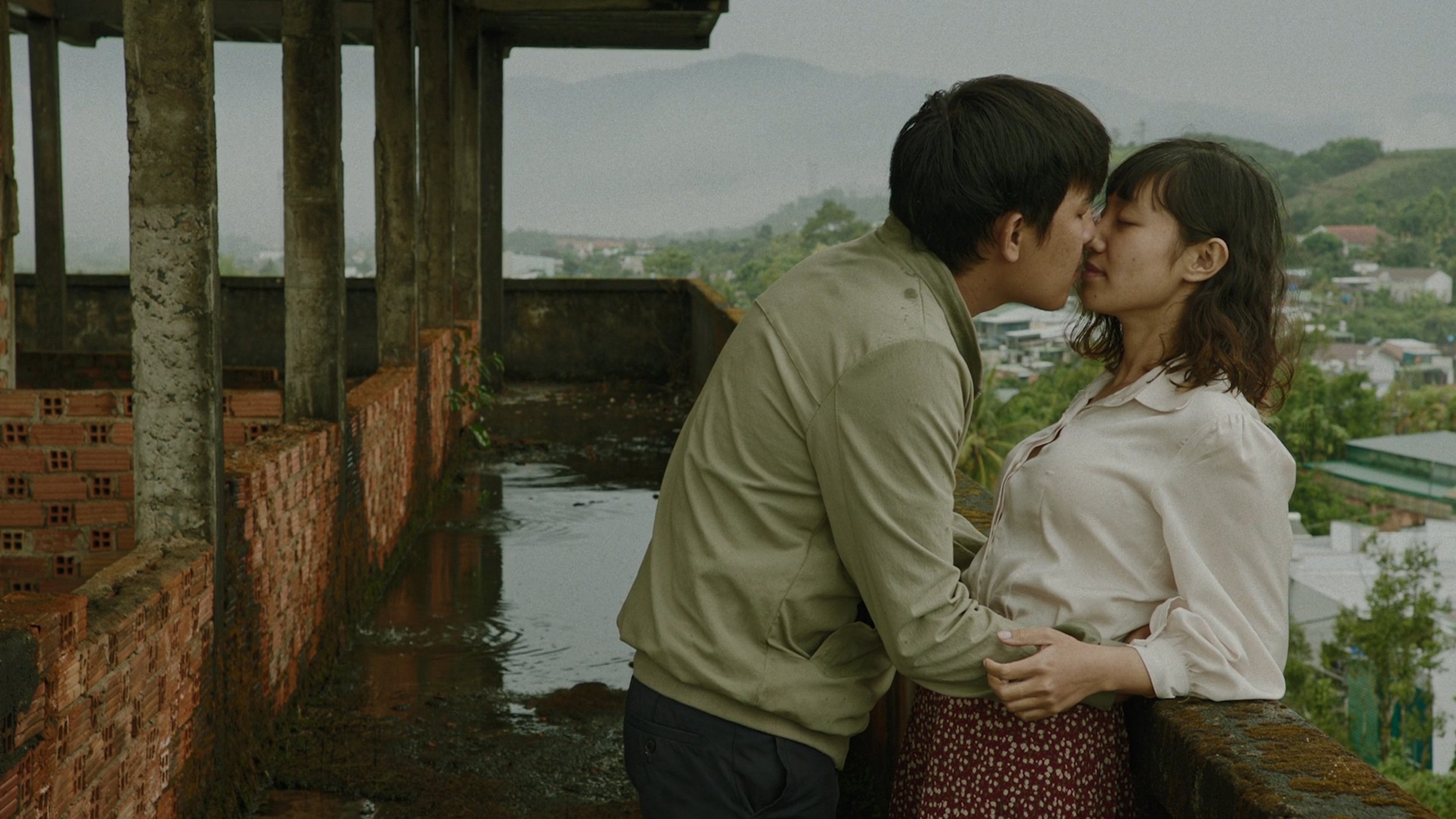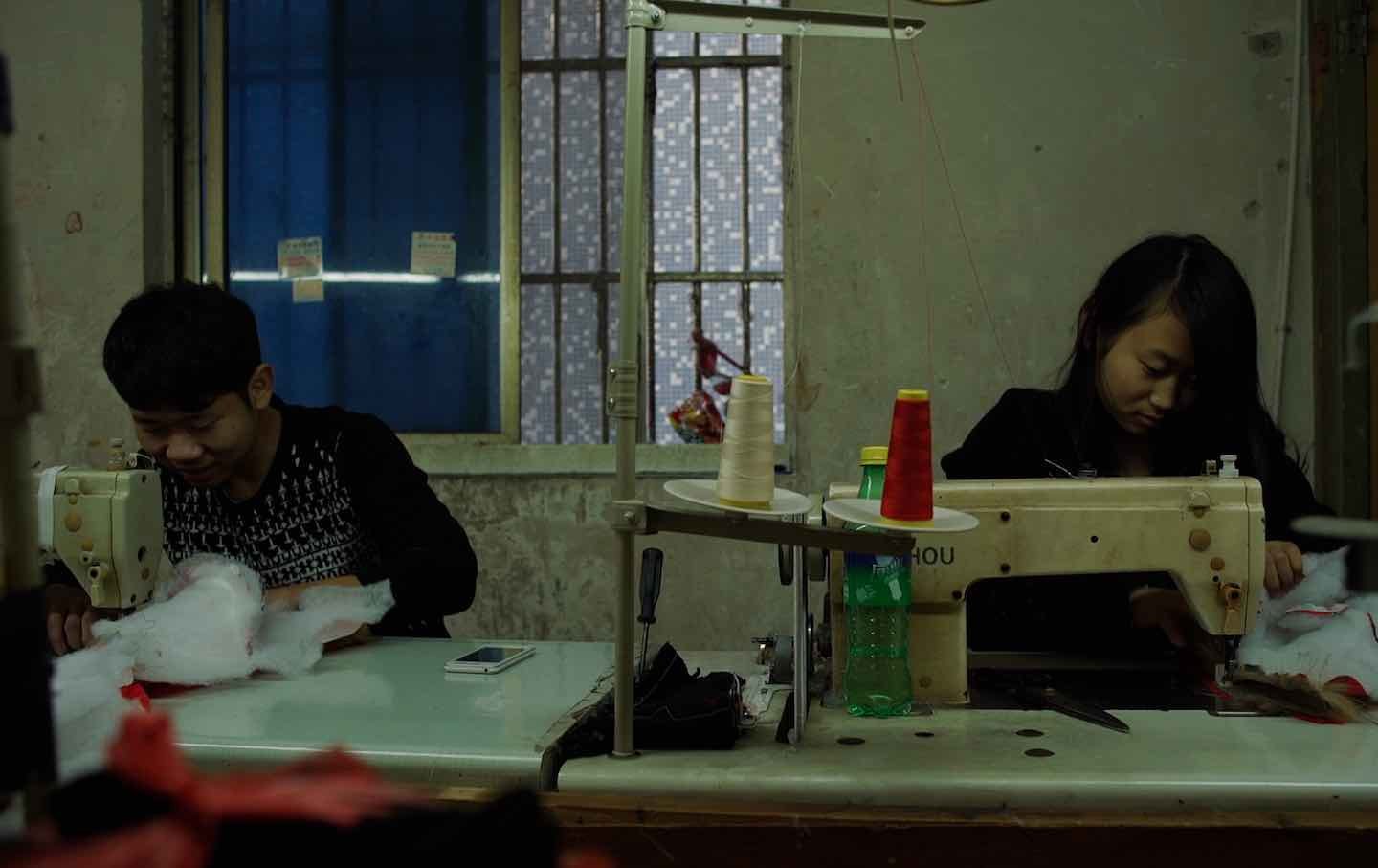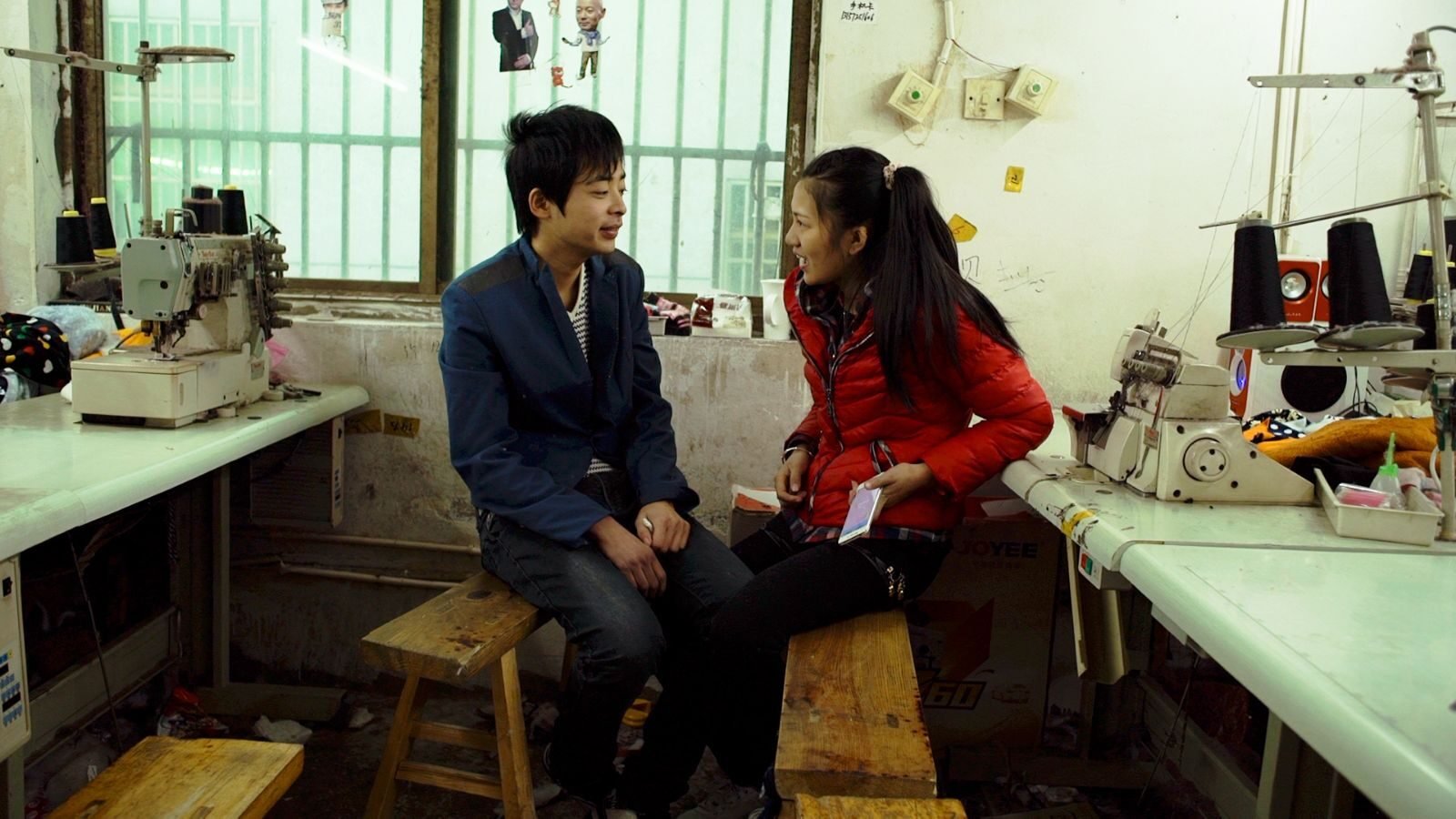New York Film Festival 2023
FILM AT LINCOLN CENTER, NEW YORK, NY
SEPTEMBER 29 – OCTOBER 15, 2023
Drake Stutesman
Some films to see:
UN RÊVE PLUS LONG QUE LA NUIT / A DREAM LONGER THAN THE NIGHT
1976
Niki de Saint Phalle
France/Switzerland
82 min.
The new 4K restoration of Niki de Saint Phalle’s extraordinary, inventive film, Un rêve plus long que la nuit, is a brilliant addition to the New York Film Festival’s line up. Beautifully shot by Bernard Zitzermann, the film creates a fairy tale of a young girl adventuring in a landscape of manor houses, magical creatures, men, and forests, and, by magic, becoming a woman and discovering adult life. de Saint Phalle turns the tale’s typical gender roles, misogyny, and patriarchy on its head by both lauding some of the cliches and by newly representing them as female. As the film moves through these encounters, in a mix of ‘70s sex and a myth-making as seamlessly committed to its own world as that of Jean Cocteau, de Saint Phalle uses her drawings, with written lines, to punctuate the stories. The film comes together as an aggregate made up of old material, that gives birth to new ideas, something de Saint Phalle is known for.
Must see. An ingenious, beautiful, groundbreaking film from surreal artist Niki de Saint Phalle. Long unavailable, now restored in 4K.
BÊN TRONG VỎ KÉN VÀNG/ INSIDE THE YELLOW COCOON SHELL
2023
Phạm Thiên Ân
Vietnam
177 Min.
Inside the Yellow Cocoon Shell follows the typical device of a young man, Thien (played by Lê Phong Vũ), based in the city, in this case Saigon, returning to his village after a death in the family. His sister-in-law has been killed in a motorcycle accident, leaving behind her five-year-old son, whom Thien is taking home. Through this journey, the film moves along Thien’s own life—encountering an old friend, a past girlfriend who’s now a nun, a war veteran—and Vietnam’s complex history, as a country invaded and occupied by many nations (Mongol, Chinese, French, American, and more), all of whom were ultimately defeated by the Vietnamese. It also moves through some of its religions (Catholicism, Buddhism). Engrossing and visually stunning, Inside the Yellow Cocoon Shell becomes a vast narrative experiment, where the story (the journey from Saigon to the village) is literally part of the screen itself.
Vietnamese director Phạm Thiên Ân makes his film out of pieces. These pieces are about the perception of how the story is told as much as what the story itself is. For example, the credits appear a third of the way into the film, as if they are not just information, but a piece of the movie, or within the movie’s story. Phạm Thiên Ân underscores, through these devices, that he and the film that we are watching are part of the ever-ongoing Vietnam story. In another example, at times the screen seems to waver, as it does during a shot of a window with a waving mesh curtain, implying that the screen and the window frame projected on the screen are one. And in one of the most striking and most memorable scenes, while an old man recounts his experience as a soldier in the 1960s American Vietnam war to Thien, the camera enters his almost empty wooden house on a muddy road. As the two men walk through the house, the story he tells and the filming of him telling the story become the experience of hearing the story. It is as if the two men walking through the house, as the young man hears the older man’s real experience, are Vietnam’s past and present. And, further, the film is about the future—that Vietnam is ever imbued with this palpable telling of the story—how it is told, how it unfolds, how it can be distorted or known by emotion, memory, and longing.
Must See. Vietnam's past, present, and future unfold in Phạm Thiên Ân’s evocative, down-to-earth, and surreal film.
QINGCHUN / YOUTH (SPRING)
2023
Wang Bing
France / Luxembourg / Netherlands
215 min.
Wang Bing's documentary, Youth, follows young women and men in their teens, 20s, and older, who work the sweat shops in Zhili, a textile industry center about 200 miles from Shanghai. Most have commuted to the job from rural towns, some as far as 2000 miles away. As such, they live in dormitories, where they eat and hang out together. The workers are acutely aware of being filmed, and it is hard to tell if they act for the camera or are indifferent to it. They often look at the camera, and Wang Bing will speak from behind it, creating a strange conversation of direct address. Equally, though, they unselfconsciously clown, almost like children; wrestle with each other sexually, violently, or angrily; fight; and eat, while pounding out work on the sewing machines and the cutting machines, all at lightning speed. They also confront management for a pay raise and deal with abortion. The film repeats these daily scenes many times, making it about repetition, as the people's lives are about repetition. Wang Bing is an activist with remarkable films about worker hardships, such as his 2002 epic nine-hour documentary, Tie Xi Qu/West of the Tracks, about workers in the iron industry. He is well known—his films are visually striking and his subjects on labor rights are universal. But, arguably, for those who do not know Chinese culture, Youth is in many ways deceptively approachable. Not knowing the politics, culture and laws makes the film’s reality, at some level, impenetrable.
Must see. Wang Bing's piercing look at young workers in China's textile industry sweat shops.

